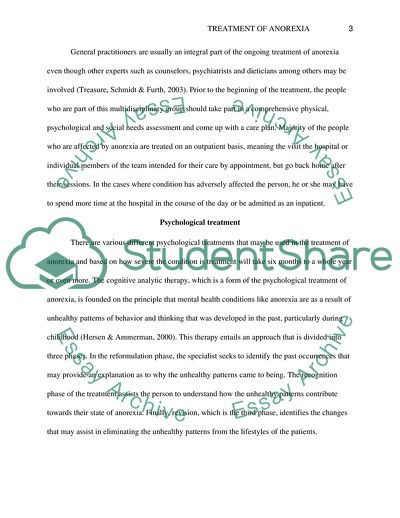Cite this document
(Treatment of a Anorexia Nervosa Coursework Example | Topics and Well Written Essays - 1500 words, n.d.)
Treatment of a Anorexia Nervosa Coursework Example | Topics and Well Written Essays - 1500 words. https://studentshare.org/health-sciences-medicine/1848280-treatment-of-a-anorexia
Treatment of a Anorexia Nervosa Coursework Example | Topics and Well Written Essays - 1500 words. https://studentshare.org/health-sciences-medicine/1848280-treatment-of-a-anorexia
(Treatment of a Anorexia Nervosa Coursework Example | Topics and Well Written Essays - 1500 Words)
Treatment of a Anorexia Nervosa Coursework Example | Topics and Well Written Essays - 1500 Words. https://studentshare.org/health-sciences-medicine/1848280-treatment-of-a-anorexia.
Treatment of a Anorexia Nervosa Coursework Example | Topics and Well Written Essays - 1500 Words. https://studentshare.org/health-sciences-medicine/1848280-treatment-of-a-anorexia.
“Treatment of a Anorexia Nervosa Coursework Example | Topics and Well Written Essays - 1500 Words”. https://studentshare.org/health-sciences-medicine/1848280-treatment-of-a-anorexia.


